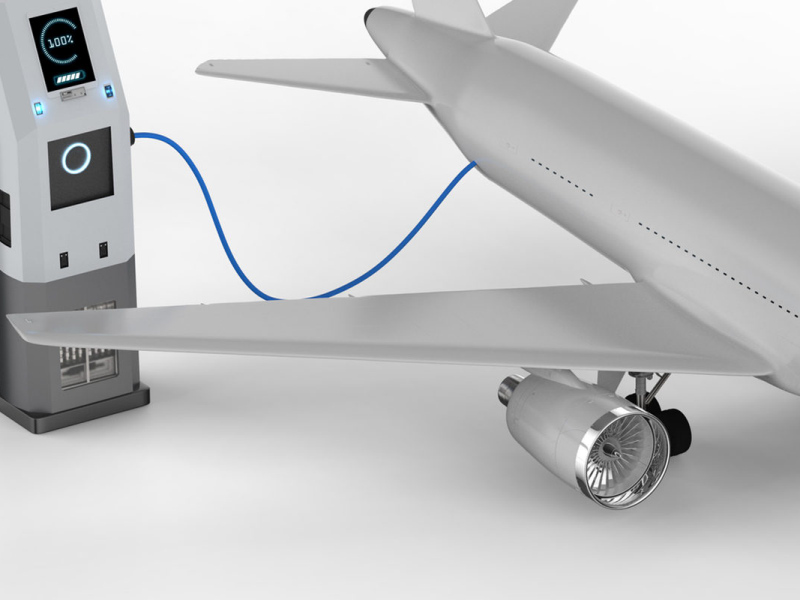
(Photo : Smart-Energy.com)
Electric aviation
- Tata Motors, Delta Electronics India, and Thunderplus Solutions are collaborating to establish 250 new fast-charging EV stations across India.
- The expansion of charging infrastructure is expected to encourage more customers to opt for electric commercial vehicles.
- The collaboration allows Delta Electronics to contribute significantly to India's electric cargo ecosystem with their advanced charging technology.
- This move aligns with the global trend towards cleaner and more sustainable transportation systems, as seen in countries like China.
In a significant stride towards strengthening India's electric vehicle (EV) infrastructure, Tata Motors has announced a collaboration with Delta Electronics India and Thunderplus Solutions. The partnership aims to establish 250 new fast-charging EV stations across the country. This initiative is set to considerably expand the existing network of 540 commercial vehicle charging points. The new stations will be located in and around over 50 cities, including Delhi, Mumbai, Chennai, Bengaluru, Pune, and Kochi, among others.
The expansion of charging infrastructure on high-use routes is expected to encourage more customers to opt for electric commercial vehicles. This move will improve vehicle uptime, increase revenues, and enhance profitability. It also aligns with the broader goal of contributing towards a cleaner, greener environment. As Vinay Pathak, Vice President and Business Head - SCV and PU, Tata Motors Commercial Vehicles, stated, "Expanding the available charging infrastructure on high-use routes will encourage more customers to opt for electric commercial vehicles and improve vehicle uptime resulting in higher revenues and better profitability, while contributing towards a cleaner, greener environment."
Tata Motors' Strategic Collaboration and its Impact
The collaboration with Delta Electronics and Thunderplus Solutions is a strategic one. While Delta Electronics will supply the necessary hardware for the charging stations, Thunderplus Solutions will be responsible for their installation and operation. Niranjan Nayak, Managing Director, Delta Electronics India, emphasized the significance of this collaboration, stating, This collaboration allows us to contribute significantly to India's electric cargo ecosystem. Our advanced charging technology will play a crucial role in enhancing the electric commercial vehicle experience for users nationwide.
Tata Motors' commitment to the EV sector is further demonstrated by its offering of the Ace EV - a four-wheel e-cargo solution for last-mile deliveries. This vehicle is supported by over 150 electric vehicle service centres across the country. The demand for electric buses is also expected to remain robust in the coming years due to the growing focus on cleaner transportation systems and various government initiatives.
Government Initiatives and Global Trends in EV Infrastructure
In 2023, the government unveiled the PM e-bus Sewa Scheme, allocating a substantial $2.4 billion to deploy and operate 10,000 electric buses through a public-private partnership model across 169 eligible cities. These eco-friendly vehicles are set to hit the roads soon, with full deployment anticipated by 2026. According to a report by CareEdge Ratings, the transition to EVs is particularly evident in the e-bus and light commercial vehicle (LCV) categories.
In FY24, registrations of electric heavy passenger vehicles (e-HPVs), primarily large electric buses, surged significantly. Registration of electric light passenger vehicles (e-LPV) also surged from 360 units to more than 10,500 units during the aforementioned period.
The expansion of EV infrastructure in India is not an isolated event but part of a global trend towards cleaner and more sustainable transportation systems. For instance, China, which has experienced an infrastructure boom and mushrooming demand for road transportation over the past decade, has seen rapid growth in its heavy-duty-truck (HDT) market. As technology and infrastructure mature, electric HDTs are expected to grow rapidly in popularity over the next ten to 15 years and will be used in various applications, driving electrification in the entire HDT ecosystem.
The collaboration between Tata Motors, Delta Electronics India, and Thunderplus Solutions to set up 250 new fast-charging EV stations across the country is a significant step towards bolstering India's EV infrastructure. This move, along with other initiatives and government schemes, is expected to encourage more customers to opt for electric commercial vehicles, thereby contributing towards a cleaner, greener environment.
The expansion of EV infrastructure is not only a trend in India but also a global phenomenon, with countries like China also witnessing rapid growth in their EV markets. As technology and infrastructure continue to mature, the adoption of EVs is expected to grow rapidly, driving the electrification of the entire transportation ecosystem.
* This is a contributed article and this content does not necessarily represent the views of btin.co.in









